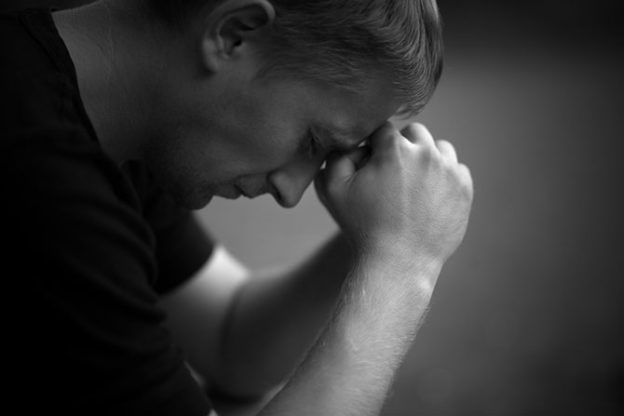Mental health problems in men are at an all-time high. Again and again, day after day, we hear unfortunate stories about guys who are deep in depression or experiencing some sort of anxiety, just hoping for a way to stop their minds from going to a dark place.
Here’s the thing, though; because many of us have grown up being told by parents, society or someone else that talking about our feelings is considered weak, guys continue to internalize their negative thoughts, leading to higher rates of suicide and other long-term mental problems. Think of it this way, if you were to burn your hand on a hot pot over and over, would you continue to do it each day, or would you try something differently to avoid experiencing the pain? We’re hoping the latter, yet, because of public perception, guys don’t change their mindset when it comes to mental health.
What’s the impact of keeping these mental health struggles inside? There are plenty — and it could be a major factor in early death among men.
According to the American Psychological Association (AMA), 9 percent of men experience depression on a daily basis, which is about 6 million men. What’s more, many of the guys who have depression aren’t acknowledging it, instead saying that they’re tired, cranky or are just having “one of those days.” This needs to stop.
As for other mental health problems, like anxiety, Mental Health America (MIA), says that 3 million men struggle with it on a daily basis. What’s worse, because men aren’t addressing these problems by speaking out, it leads to other problems like schizophrenia — which, of the 3.5 million people diagnosed by the age of 30, more than 90 percent are men — and substance abuse problems like alcohol or drugs, with one in five men developing alcohol dependency during his lifetime, per the MIA.
All of this is leading to the bigger problem that no one really wants to talk about: suicide. Being classified as a “silent epidemic,” suicide is the seventh leading cause of death for males, per Men’s Health, with it being the second most common cause of death for guys between the ages of 10 and 39. Think about that for a second, suicide, for whatever reason — mainly contributed to mental health problems — is causing more deaths for millennial men than unexpected health problems. This must change.
How can it? With more men dropping the masculine front they’ve been told to carry with them all their lives and start sharing their problems. Talk to a family member, a friend, a counselor. When you’re feeling down or depressed, look yourself in the mirror and try to find the root of the problem. Avoid negative people in your life who try to bring you down. And, maybe most importantly, block out the image of the “ideal man” that people gawk over on social media or on TV. Comparing yourself to anyone else is doing an disservice to the strengths you have.
We’ve all been there, so know that you’re not alone in your thoughts. But, remember this: actions speak louder than words, and if you find yourself depressed or anxious, take the action to correct the problems instead of ignoring them.




